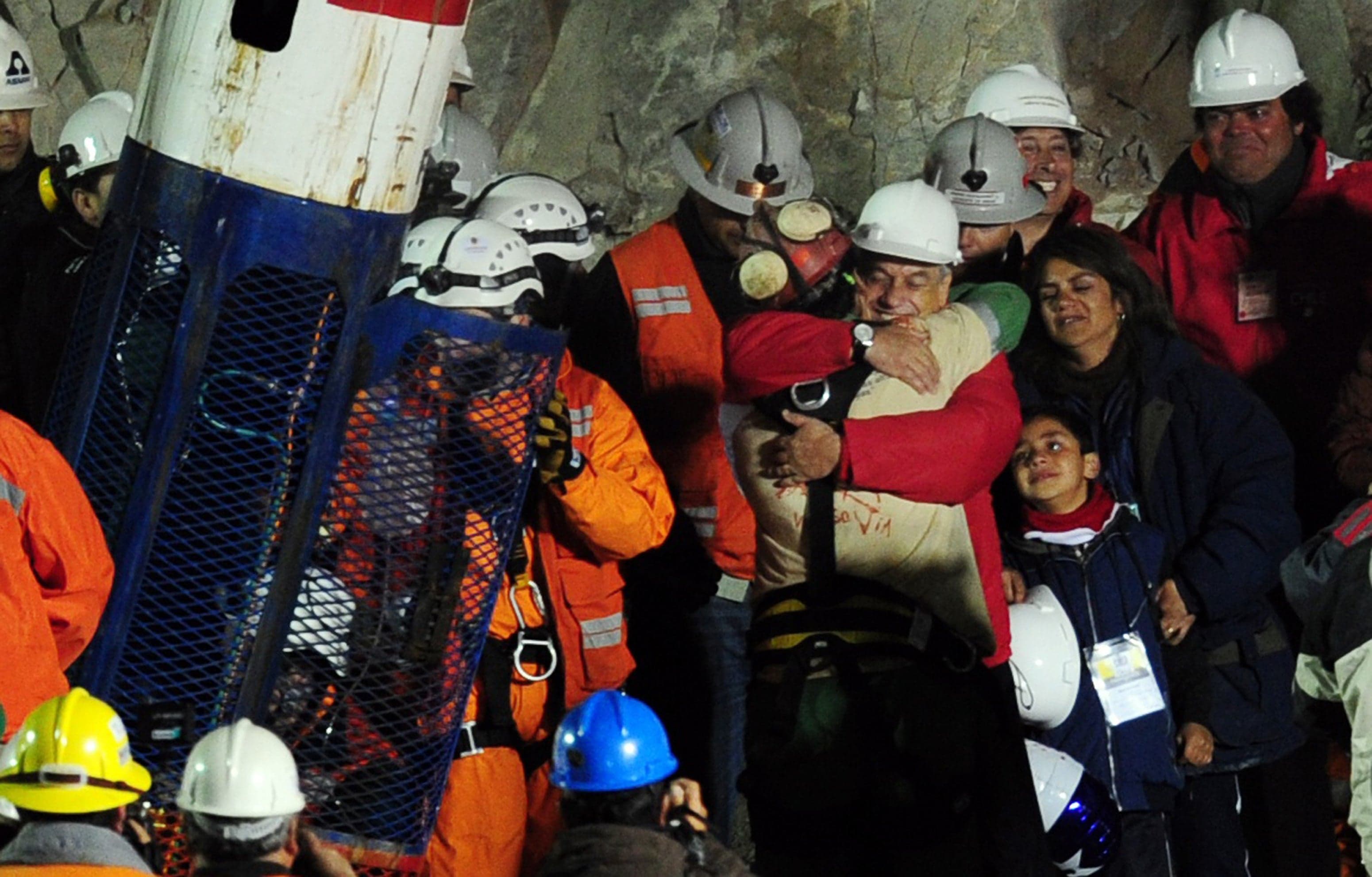On October 13, 2010, the last of 33 miners trapped nearly half a mile underground for more than two months at a caved-in mine in northern Chile, are rescued. The miners survived longer than anyone else trapped underground in recorded history.
The miners’ ordeal began on August 5, 2010, when the San Jose gold and copper mine where they were working, some 500 miles north of the Chilean capital city of Santiago, collapsed. The 33 men moved to an underground emergency shelter area, where they discovered just several days’ worth of food rations. As their situation grew more desperate over the next 17 days, the miners, uncertain if anyone would find them, considered suicide and cannibalism. Then, on August 22, a drill sent by rescuers broke through to the area where the miners were located, and the men sent back up a note saying, “We are fine in the refuge, the 33.” Food, water, letters, medicine and other supplies were soon delivered to the miners via a narrow bore hole. Video cameras were also sent down, making it possible for rescuers to see the men and the hot, humid space in which they were entombed. As engineering and mining experts from around the world collaborated on the long, complex process of devising a way to bring the 33 men up to the surface, the miners maintained a system of jobs and routines in order to keep up morale.
Rescuers eventually drilled and reinforced an escape shaft wide enough to extract the men, one by one. (Employees of a Pennsylvania-based drilling-tool company played a role in drilling the rescue shaft.) On October 12, the first of the miners was raised to the surface in a narrow, 13-foot-tall capsule painted white, blue and red, the colors of the Chilean flag. The approximately 2,000-foot ascent to the surface in the capsule took around 15 minutes for each man.
The miners were greeted by a cheering crowd that included Chile’s president, Sebastian Pinera; media from around the world; and friends and relatives, many of whom had been camped at the base of the mine in the Atacama Desert for months. Millions of people around the globe watched the rescue on live TV. Less than 24 hours after the operation began, all 33 of the miners, who ranged in age from 19 to 63, had been safely rescued. Almost all the men were in good health, and each of them sported dark glasses to protect their eyes after being in a dimly lit space for so long.
The rescued miners were later honored with trips to a variety of destinations, including England, Israel and Florida’s Walt Disney World, where a parade was held in their honor.
